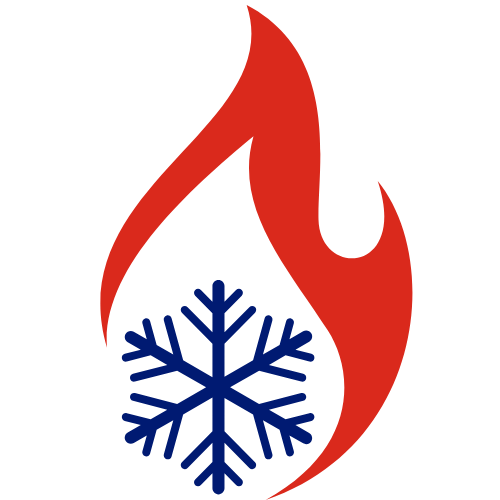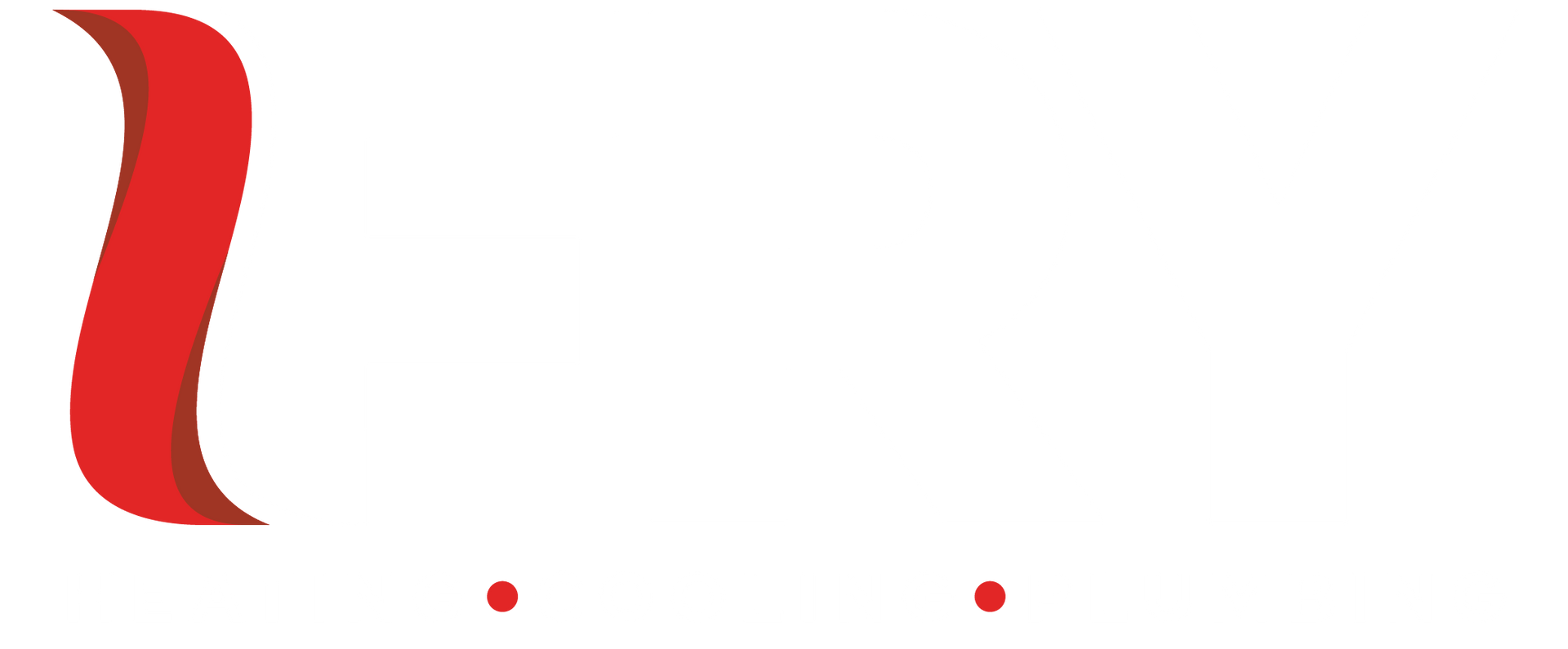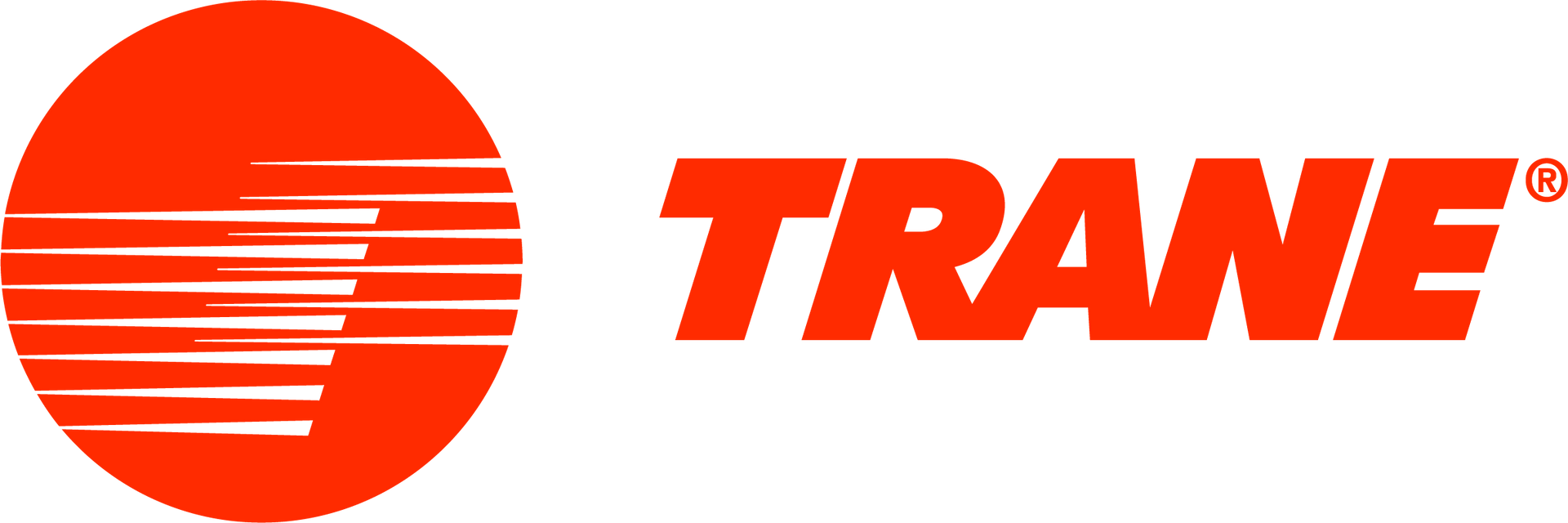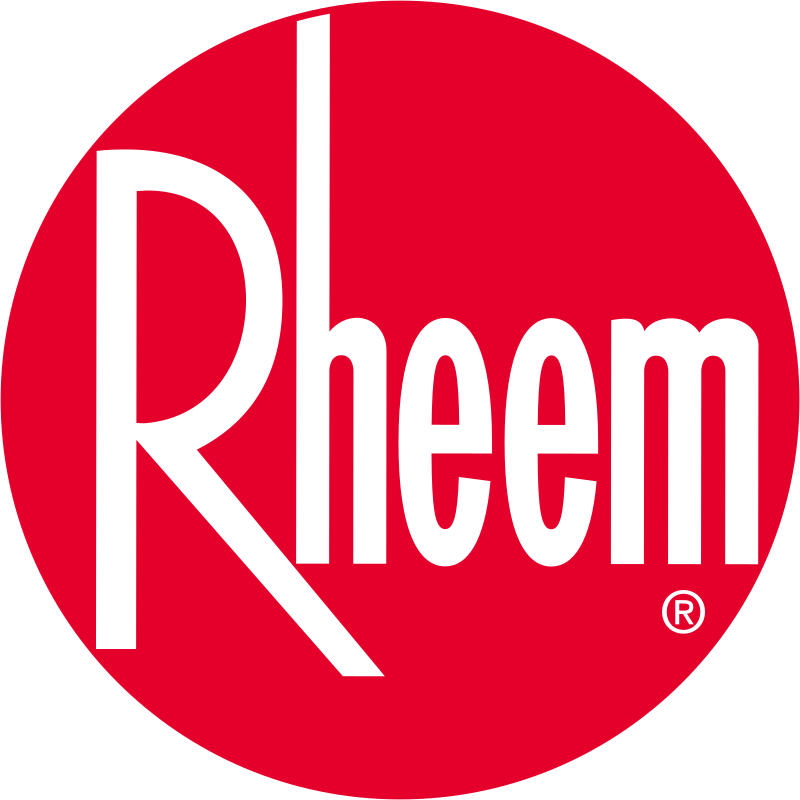Our Residential Geothermal Services in Toledo, Ohio
Energy-Efficient HVAC Solutions That Tap Into the Power of the Earth - Reliable, Sustainable, & Cost-Saving for Your Home
A Breath of Fresh Care.
Toledo's Residential Geothermal Service Company
Geothermal systems provide several good options for efficient indoor heating and cooling by tapping into the earth to capture its renewable energy. Throughout Fry Heating, Cooling, & Plumbing’s historic 90+ year legacy, the company has provided thousands of homeowners with the finest comfort systems available. Offering a wide variety of Rheem, Trane, or York furnaces, air conditioners, and heat pumps, we are experts when it comes to customized home comfort systems. But it doesn’t end there. Fry Heating, Cooling, & Plumbing also offers a complete line of exceptional geothermal comfort systems for your home.

We're Listening
Get a free quote today!
Fry - Residential Geothermal #1
We will get back to you as soon as possible.
Please try again later.
How Does Geothermal Work?
The earth absorbs energy from the sun and stores it in the ground. A geothermal system extracts that energy for home heating during the winter. For cooling, the system removes heat from the home and places it into the cooler earth. This transfer of heat energy is done through a series of pipes either buried in the ground, sunk in a pond, or by using well water.
Why Choose Geothermal?
Geothermal systems provide homeowners with a wide range of benefits
- Savings Geothermal systems can offer lower operating costs compared to ordinary forced-air heating and cooling systems. Those savings can be as high as 70% in annual heating and cooling costs. Though, open loop systems may require more complex maintenance due to the use of natural water and potential for mineral deposits.
- Comfort These systems can provide even temperatures throughout the home year-round, with excellent dehumidification during cooling. By utilizing the Earth’s temperature, your indoor environment can be easily sustained.
- Reduce Environmental Impact Geothermal is a renewable technology that can reduce your carbon footprint now and for future generations. In fact, a single geothermal heat pump can reduce greenhouse gas emissions by 11 metric tons over its 20-year lifespan, the equivalent of taking two cars off the road.
- Reliability Geothermal units are known for durability and can operate for years with little maintenance. In addition, ordinary heat pumps and air conditioners are located outdoors and are subject to wear and tear caused by extreme temperatures, rain, snow, hail, and pollution, which can potentially reduce their life expectancy. Because geothermal units are located indoors, they can last 20+ years.
- Quiet Operation Unlike ordinary air conditioners and heat pumps, no outdoor unit is required. Geothermal units use heavy-duty, fully insulated cabinets for quiet operation. Quiet, soft-starting, variable-speed blowers are used in many models.
- Flexibility Geothermal comfort systems can provide heating, cooling, and supplemental water heating from a single unit with a wide variety of models and options to fit most applications.
- Versatility & Hot Water Excess heat from system operation can be used to supplement the home’s water heater. Open loop systems can serve multiple purposes, making them highly cost-effective if you also require water for other applications like sprinklers.
- Reduce Energy Independence Geothermal systems can reduce our need to import fuel. An open loop with a deep well is the most efficient option due to the use of pure water and the greater thermal stability at depths.
Renewable Energy From The Earth
Geothermal systems can be installed with a variety of loop system configurations. “Closed loops” use recirculated fluid in a series of pipes installed vertically, horizontally, or in a pond. “Open loops” use well water. Fry Heating, Cooling, & Plumbing will determine which design works best for your home.
Geothermal systems use renewable energy from the earth, so the technology is one that can reduce your carbon footprint. Imagine the impact of the reduced emissions resulting from every current geothermal comfort system installation today.
Let's Compare!
Geothermal Loop Types with a Focus on Thermal Transfer Efficiency & Multi-Use Functionality
Horizontal Loops
Used on larger lots. Installed using a backhoe or trencher.
- Thermal Efficiency Lower due to shallow depth; soil has less thermal conductivity near the surface.
- Multi-use Not applicable; dedicated solely to the HVAC system.
- Fluid Type Typically, a water-glycol mix, reducing thermal transfer efficiency compared to pure water.
Vertical Loops
Used where land area is limited or soil conditions prohibit horizontal loops. Installed using a drilling rig.
- Thermal Efficiency Higher, as the loop extends deeper into the ground with better thermal conductivity.
- Multi-use Not applicable; dedicated solely to the HVAC system.
- Fluid Type Typically a water-glycol mix, reducing thermal transfer efficiency compared to pure water.
Open Loops
Pond Loop Coils of pipe are fabricated and sunk to the bottom of the pond. Well Water Loop Well water from an existing well can be used and then discharged into a drainage ditch or pond.
- Thermal Efficiency Very high; natural water possesses excellent thermal transfer properties. No glycol mix dilutes the heat transfer capacity.
- Multi-use Highly versatile; water from the well can be used for sprinkler systems, irrigation, or other property needs.
- Fluid Type Pure water, optimizing thermal transfer.
For an Added Level of Efficiency
Variable Frequency Drives (VFDs): For the pumps, which adjust speed based on real-time requirements, thereby saving energy.
We're Listening
Get a free quote today!
Fry - Residential Geothermal #2
We will get back to you as soon as possible.
Please try again later.
Lower Your Energy Bills with Geothermal HVAC
Up to 70% Savings on Heating, Cooling, and Hot Water
One of the main reasons many homeowners choose geothermal is the benefit of lower operating costs. The cost for heating, cooling, and hot water can combine for up to 75% of a home’s total utility costs. Therefore, the biggest opportunity to save in utility costs is to improve those systems. That’s where geothermal can help in a big way.
For every one unit of energy purchased, a geothermal system can deliver up to four units of energy because it uses energy from the earth. In many scenarios, a geothermal system is significantly less expensive to operate than ordinary forced air heating and cooling systems. Geothermal systems can save up to 70% in annual heating and cooling costs and can save energy on domestic hot water costs.
One way to compare heating efficiency is to calculate the cost for 1 million BTUs of heat transfer. Using a standard formula, an “apples to apples” comparison can be made based on local fuel rates and equipment efficiency. The table at right demonstrates a typical savings opportunity with geothermal. To get the full picture for your home, contact Fry Heating, Cooling, & Plumbing.
ASK US ABOUT
FINANCING

Visit RELYonFRY.com to explore our flexible financing options designed to make home maintenance more affordable. Whether you’re upgrading your systems or need urgent repairs, we offer easy payment plans to fit your budget. Check out our website today to learn more and find the best option for your needs!

HVAC Services
We can handle all aspects of heating and cooling, including furnaces, A/C, and split units. With a focus on eco-efficiency and smart installations, our HVAC services will help bring improved indoor air quality through a well-thought-out vent and duct design customized to your layout.

Plumbing Services
Our plumbers can do everything from installing boilers, fixtures, and water heaters to providing our clients with plumbing repairs. We are a full-service plumber, which means we have the tools and expertise in-house to handle anything from leak detection to drainage and sewer issues.

Emergency Services
You do not get to choose when you are in need of an HVAC or plumbing 24/7 emergency call out, but when you work with Fry, you can breathe a sigh of relief. From flooding to sewer backups or even furnace breakdowns that leave you with no heat, our technicians are ready and waiting for your call.
Our Trusted Suppliers & Brands
Install the best brands you can rely on.
Trane has been the golden standard in heating, ventilation, and air conditioning systems here in the United States since they opened their doors all the way back in 1913. We are proud to partner with such a giant in the HVAC industry, and our technicians are trained by Trane to install, repair, and maintain these cutting-edge commercial and residential systems.
York is one of the mainstays in the commercial and residential HVAC industry. Their commitment to quality materials and smarter, more efficient systems makes them the perfect option for those looking for an upgrade. Our technicians are fully trained by York to install, repair, and maintain the entire line of York commercial and residential HVAC systems.
Rheem is a global brand that has made its name by producing some of the best HVAC systems in commercial and residential spaces. Our technicians have worked with Rheem for years, and with the proper training to install, repair, and maintain these units. From furnaces to air conditioners, you can always trust a Rheem unit to last for decades with proper care and maintenance.
Proudly Serving Our Neighbors & The Communities That Serve Us!
Our Northwest, Ohio Service Area
Toledo
Beverly, Birmingham, Darby (Eastern to South-Old South End), DeVeaux, Crossgates, Five Points, Downtown, East Toledo, Franklin Park, Garfield, Glendale-Heatherdowns, Byrne-Heatherdowns Village, Harvard Terrace, Library Village, Nasby, North Towne, Old Orchard, Old West End, Old South End, Old Town, ONE Village, Vistula, & North River, Kuschwantz, Lenk's Hill, Ottawa, Reynolds Corners, Roosevelt, Scott Park, Secor Gardens, Southwyck, Wernert's Corner, Trilby, University Hills, Uptown, Warehouse District, Warren Sherman, Westgate, Westmoreland
Maumee
Blystone, Brandywine, Byrnwyck, Carisbrook, Carmella Gardens, Concordia, Crystal Ridge, Deer Valley, Eastgate Addition, Fenwyck Arms, Fort Miami, Fort Miami Add, Greenfield Acres, Greycliffe at The Quarry, Heatherglen, Homestead At The Quarry, Homestead Condo, Hunt And Beaugrands, Hunts Addn, Loch Haven, Manitou Grounds, Maumee Blvd Terrace, Maumee Gardens, Maumee Meadows, Maumee Valley Garden, Meadwood Heights, Miami Blocks, Monclova Gardens, Salisbury Landings, Shadow Valley Estates, Stonegate, Strayer Farms, Sumner Plains, The Glen Of Shadow V, The Quarry, Timber Valley, Trail Ridge, Valley Stream, Villas At The Quarry, Waterside, Williams Way
Perrysburg
Roachton, Lime City, Dowling / Five Points, City Center, Perrysburg South, Perrysburg Southeast, Perrysburg East, Belmont Farms Carrington Woods, Eckel Trace, Hawthorne, Horseshoe Bend, Meigs On The River, Riverbend Lakes, Saddlebrook, Sanctuary Meadows, The Sanctuary, Sanctuary In The Woods, Downtown, Rivercrest, Sheffield Place, The Hamlet, Riverside Park, Woodlands Park
Bowling Green
Bowling Green West, Bowling Green Southwest, Bowling Green South, Bowling Green North, City Center, Bowling Green Southeast, Westgate Homes, Asbury Hills, Meadowvale, Wintergarden Heights, Hull Prairie, Portage, Sugar Ridge, Scotch Ridge, Rudolph, Weston, Jerry City, Tontogany, Rudolph, Weston, Haskins
Sylvania
Brookside, Centennial, Quarry Ridge, Brookestone Village, Twelve Lakes/Walnut Springs, Sylvania Mitchaw, The Parklands / Sylvan Hills, Brint Crossing, Pacesetter Park, The Quarry, Twelve Lakes, Walnut Springs, Bridgecreek, Sylvania West, Milton Oleander Park, Lourdes University, City Center, Sylvania South, Sylvania East, Downtown, Timberstone, Highland Meadows, North Sylvania
Holland
Sandburg Corners, Spring Valley, Village Center / South Hill Park, Crissey, Holland West, Holland North, Holland-Sylvania, Wolfinger, Shop at Fallen Timbers, The Strawberry Acres Park, Springfield Township, Fairfield Village, Hidden Harbor, Holloway, Timber Valley, Stone Oaks, Orchard Lakes, Spring Meadows
Monclova
East Monclova, Monclova Heights, Downtown Monclova, Riverside Monclova, Blystone Valley, Waterville Meadows, Moncolva Hills, The Quarry
Ottawa Hills
Central Ottawa Hills, North Ottawa Hills, East Ottawa Hills
Rossford
Eagle Point Colony, Downtown Rossford, Colony Estates, Indian Hills, Crossroads
Pointe Place
Shoreland, Dry Tree Point, Summit St.
Oregon
Coy Road Area, Navarre Avenue, Pickle Road Area, Starr Avenue Area
Northwood
Aztec, Wolf Creek, East Gardens, West Pointe
Swanton
East Swanton, Birchwood Meadows, Wilkins
Delta
West Delta, Southwood Falls, Oakview
Waterville
Downtown, Riverfront, West Waterville, East Side
Whitehouse
Village Center, Whitehouse South, Steeplechase, Savannah Lake, Whitehouse Meadows
Grand Rapids
Neapolis, W Second St.
Napoleon
Baldwin Woods, Arrowhead Trails, Lake Haven, Okolona, Florida
Liberty Center
State Route 109, E Maple St.
Lucas County
Maumee, Oregon, Sylvania, Toledo, Waterville, Berkey, Harbor View, Holland, Ottawa Hills, Swanton, Whitehouse, Harding, Jerusalem, Monclova, Providence, Richfield, Spencer, Springfield, Swanton, Sylvania, Washington, Waterville, Curtice, Neapolis, Reno Beach, Bono, Frankfort, Monclova, Providence, Richfield Center, Shoreland, Yondota, Marengo, Providence
Henry County
Napoleon, Deshler, Florida, Hamler, Holgate, Liberty Center, Malinta, McClure, New Bavaria, Bartlow, Damascus, Flatrock, Freedom, Harrison, Liberty, Marion, Monroe, Napoleon, Pleasant, Richfield, Ridgeville, Washington, Ridgeville Corners, Colton, Elery, Gerald, Grelton, Okolona, Pleasant Bend, Texas
Our Southeast, Michigan Service Area
Ann Arbor
Kerrytown, Water Hill, Eberwhite, Old West Side, Arborview, Lower Burns Park, Allmendinger Heights, Germantown, North Burns Park, Old Fourth Ward, Garden Homes, Dartmoor, Upper Water Hill, Wildwood Park, Selma, Barton Hills, Tuomy Hills, Angell, Ann Arbor Hills, Narrow Gauge Woods, Barton Plateau, Huron River Heights, East Packard, Glacier Highlands, Elbel, Downtown Ann Arbor, West Park, Yost, Orchard Hills-Maplewood, Northside, South Packard, Kimberly Hills, Vernon Downs, Bromley Park, Vet’s Park Triangle, Clinton-George, Frisinger-Woodbury, Hollywood Park, Liberty Glen, Sister Lakes, Broadway, Allen, Georgetown, Briarwood, Southeast Ann Arbor, South Maple, Geddes Lake, Bryant, Water Hill, Ann Arbor Hills, Ann Arbor Woods, Antique Forest, Arbor Creek, Arbor Hills, Arbor Hills II Superior Township, Arbor Pointe, Arlington Park, Ashford Village, Barton Hills, Boulder Ridge, Brass Creek, Brassow Woods, Briar Hill, Bridgefield Estates, Bromley Park, Brookside of Superior Twp, Brookview Highlands, Buckingham Place, Burns Park, Castleton Farms, Cedar Hills, Centennial Park, Central Park, Churchill Downs, Cobblestone Ridge, College Heights, Concord Pines, Cornwell Farms, Country French Estates, Creekside Village East, Crystal Creek, Darlington, Deer Run, Dexter, Crossing, Dhu Varren on the Park, Diuble Meadows, East Horizons, Etta's Valley, Fischers Landing, Fleming Creek, Forestbrooke, Fox Ridge, Foxfire, Gallery at The Polo Fields, Garden Homes Park, Georgetown, Glennborough, Greene Farms, Hawthorne Ridge, Hickory Creek, Hickory Grove Estates, Hickory Pointe, Hidden Lake, Hidden Lake, Hidden Woods, Hometown Village of Ann Arbor, Hunter's Ridge, Huron Farms, Huron River Acres, Island Hills Estates, Kelli Meadows, Kirkway of Scio, Kirtland Hills, Lake Forest, Lake Forest Highlands, Lakewood, Lansdowne, Links at Stonebridge, Loch Alpine, Lohr Lake Village, Lohr Woods, Mallard Cove, Maple Creek, Meadow Creek, Meadowinds, Newport Creek, Newport Hills, Normal Park, North Meadows, North Ralaric Farms, North Sky, Northbrooke Estates, Oak Park, Old Creek Farms, Old West Side, Orchard Place, Partridge Creek, Pauline Acres, Pheasant Hollow, Pheasant Ridge, Pine Ridge Estates, Pines of Lake Forest, Polo Fields, Ralaric Farms, Ravines, Riding Oaks Estates, River Pines Estates, Riverwood, Rolling Meadow Estates, Royal Pointe West, Saginaw Hills Estates, Sandpiper Cove, Scio Hills, Silverleaf Estates, Smokler Bolgos, Stonebridge Estates, Stoneyfield Meadows, Sunnyside, Tanglewood, The Arboretum, The Downs, The Glade, The Hamlet, The Preserve of Dexter, Thornton Farms, Torwood, Travis Pointe, Tremont Park, Turnberry, University Palisades, Uplands, Vernon Downs, Vintage Valley, Walnut Ridge, Walnut Ridge, Subdivision Trails, Walsh Farms, Warner Creek, Water Hill, Waterways, Westridge of Dexter, Wildwood, Wildwood Park, Willow Pond, Woodcreek, Woodlands of Geddes Glen, York Meadows, York Place, York Woods
Belleville
Downtown Belleview, Hickory Woods, Cobblestone Ridge, Country Pond Estates, Meadows of Van Buren, Van Buren Estates, Village Place Estates, Belle Harbor, Belleville Lake
Blissfield
Blissfield Heights, Blissfield Downtown Historic District, Kingsberry Court, Parkwood, Union, E Adrian St
Carleton
Carleton Crossing, Carleton Village, Garden Estates, Grafton Heights, Maple Crest, Masson Estates, Mathew And Hackoks, North Point Commons, North Pointe Commons, Pointe Aux Peaux Farms, The Orchards, The Orchards Condominium, Vandervoort Park
Dexter
Chain of Lakes Area, Grandview Commons, Huron Farms, Orchard River Hills, Portage Lake Resort, Brass Creek, Carriage Hills, Cedar Hills, Cottonwood, Dexter Crossing, Fox Ridge, Glen Devon, Harbor Trail, Hickory Creek, Huron Commons, Loch Alpine, Mystic Ridge, Pineview, Preserve of Dexter, Thornton Farms, Victoria, Walsh Farms, Webster Hills, West Ridge
Dundee
Arbor Chase, Courtyards Of Dundee, Dundee Ridge, Peabody, Pleasant View, River Ridge, Stonebrook, Strawberry Ridge, Van Nest, Dundee Historic District
Erie
S Dixie Hwy
Grand View
Lakeshore Dr
Ida
Lewis Ave
Lambertville
Barbara Lee Manor, Canterbury Forest, Captiva Estates, Case Gardens, Chapel Creek, Colonial Garden Estates, Cottonwood Lane, Country Club Villas, Deerfield Woods, Green Hills, Hidden Valley Estates, Kimberley Oaks, Kimberly Oaks, Knepper Farm, Lambert Estates, Little Streams Village, Mcclains Summerfield Manor, Mcclains Trilby Gardens, Mclains Summerfield Manor, Mclains Tribly Gardens, Montevallo, Quail Hollow, Springbreek, Springbrook, Springbrook Farms, Summerfield Heights, Supervisors Of Parmelee, Thunderbird Trail, Timber Creek Canyons, Trilby Estates, Trilby Garden Farms, Waterford, Willow Glen, Deep Woods, Indian Creek
LaSalle
Hillcrest Orchard, Yargerville, Grand View, Town Center
Luna Pier
Downtown Luna Pier, Lakewood Beach, Harbor View, Pier Place
Milan
Downtown Milan, Milan Heights, Eagle Crest, Milan Meadows, Country Estates, Country Estates, Milan Lakes
Monroe
Downtown Monroe, West Monroe, South Monroe, Baycrest Beach, Avalon Beach, Grand Beach
Ottawa Lake
Central Ottawa Lake, East Ottawa Lake, West Ottawa Lake, South Ottawa Lake, Ottawa Lake Heights, Meadowlands, Lakeview Estates, Woodland Acres, Pioneer Village
Saline
Centennial Park, Centennial Farms, East Horizons, Haywood Heights, Lodi Country Estates, Old Creek, Saline Valley Farms, Silo Ridge, Torwood, Wildwood Commons, York Woods, Andelina Farms, Austin Commons, Bemis Ridge Estates, Bridgewater Commons, Brookeview Highlands, Burwyck Park, Crestwood Knolls, Fosdick Glen, Hunters Ridge, Huntington Woods, Lohr Lake, Lohr Woods, Maple Cover Circle, Maple Ridge, Maplewood Farms, Northview, Oak Park Estates, Rolling Meadow Saline, Stonebridge, Thistle Down, Travis Pointe, Travis Pointe South, Warner Creek, Woodcreek, York Meadows, Yorkshire Hills
Samaria
Old Town, Southside, Eastview, Westend, Northgate
Scio
Riverdale Riverbend, Parkwood, Scio Village, Delhi Mills, Scio, Weinsburg, The Uplands of Scio Ridge, Scio Hills, Meadowinds, Kirkway of Scio
Temperance
Forest View, Eagle Ridge, Prairie Woods, Temperance Heights, Whiteford Center, Maplewood Estates, Bedford Township, Indian Creek, Albert Acres, Bedford Estates, Bedford Hills, Bragden Creek, Brookwood Forest, Bruner Estate, Covered Bridge Estates, Crosscreeks, Eagle Ridge, Enchanted Forest, Eric Heights Manor, Feltis Heights, Forest View, Fox Run, Giant Oaks Estate, Golden Acres, Golden Meadows, Goodale Park, Greenbriar Of Bedford Condominium, Hazeldell Farm, Hickory Creek, Hidden Lakes, Hooverdale Estates, Indian Acres, Kirtland, Land Ell Acres, Legacy Estates, Legacyn, Lewiston Estates, Mcclains Shelton Park, Mclains Shelton Park, Meadowlands, Midway Gardens, Mohawk Trails, Northern Pines, Orchardale, Packard Place, Prairie Woods, Raymond Place, Ridgewood, Shadow Run, Shenandoah Hills, Shendoah Hills, Sherwood Park, Silo Meadows, Smiths Centennial Village, Stonegate, Stoneybrook, Summerfield Farms, Summerfield Woods, Summerfieldhurst, Sunnydale, Supervisors Of Perrys, Swiss Gardens, Tanglewood Estates, Telegraph Gardens, The Fairways, The Heights, Village Meadows, Wanda Estates, Wayside Heights, Winding Brook, Woodstream Acres, Zeiler Farms
Ypsilanti
Ainsworth Park, Bellemeade, College Heights, Creekside Village West, Fairway Hills, Gault Village, Nancy Park, Shady Knoll, Glennborough, Greene Farms, Oakbrook, Partridge Creek, Prospect Pointe, Spruce Falls, The Pines, The Preserves, Tremont Park, Washtenaw Club, West Willow, Woodside Village, Downtown Ypsilanti, Amberly Grove, Aspen Ridge Village, Autumn Woods, Bromley Park, Brookeside of Superior, Cora Hiscock, Country Club Park, Creekside Village East, Creekside Village South, Forest Lawn, Georgetown, Greenfields, Huron Meadows, Meadowview, Millpointe-Streamwood, Normal Park, Paint Creek, Paint Creek Farms, Prospect Park, Raymond Meadows, Rivergrove Village, Rosewind, University Estates, Westlawn, Whispering Meadows, Whittaker Village
Tecumseh
Downtown, Indian Hills, Herrick Park, Brookeside
Your Geothermal FAQs...
Answered by FRY!
How efficient are geothermal heat pump systems?
Actual efficiencies will depend on a number of factors, but generally speaking, a geothermal heat pump can be between two to five times more efficient at producing heat than a gas, propane or oil furnace based on the amount of energy consumed to produce a given amount of heat. For cooling, a geothermal system (30.0 EER) can be up to three times more efficient than an air source air conditioner (10.0 EER).
Why are geothermal heat pumps so efficient?
Geothermal heat pumps use the ground temperature as a “source” for heat energy to help warm your home and use the ground as a heat “sink” during cooling. The earth acts as a giant energy battery, providing an endless, renewable source for heating and cooling comfort. Standard heat pumps use outdoor air for heating and cooling. Because the ground temperature is much more moderate and stable than air temperatures, geothermal system operation is much more energy efficient, especially at extreme outdoor temperatures.
Are these systems reliable?
Yes. Geothermal units are not subject to some of the same forces that cause wear and tear on other types of systems. And earth loops are installed using a special grade of polyethylene pipe with heat-fused fittings designed for durability and long life.
What kind of underground loop system is best?
It depends on several factors. Homes on larger lots usually have horizontal loops installed. Smaller lots may require a vertical loop. A nearby pond can also be used. If you have a well water system, that may be an option. Fry Heating, Cooling, & Plumbing is trained to determine which loop design is most appropriate for your home. Regardless of the loop system selected, the operating costs are all about the same.
How much space is needed for a closed loop system?
The smallest closed loop design, the vertical loop, may require a space of only 15×15 feet, or a line of 3×45 feet, located at least 10 feet away from the home and 10 feet from property lines. Horizontal loops require considerably more space.
How are the unit size and loop design determined?
Fry Heating, Cooling, & Plumbing uses geothermal system design software to determine the most appropriately sized unit and loop for your home. The software takes many factors into consideration, including the heating and cooling requirements of the home, loop type, depth, soil conditions, earth temperatures, outdoor air temperature extremes, local fuel rates, and much more. In addition, the software can demonstrate energy costs for a geothermal system versus another type of heating and cooling system.
Will the fluid in the loops freeze during a long, cold winter?
No. Antifreeze in the loop fluid eliminates any concerns about freezing.
Can a well be used instead of an earth loop?
Yes. Prior to using a well for a geothermal installation, the water quality must be checked. Sufficient water volume is needed for the unit, usually about four to nine gallons per minute during unit operation. A discharge location like a pond or drainage ditch is also required.
How big does a pond have to be for use with a geothermal system?
For most installations, the pond should have a surface area of at least a half acre and a minimum depth of 10 feet. Bigger is better.
What is the actual efficiency of a geothermal system?
he energy efficiency of a geothermal system is rated by an industry standard known as ARI/ISO 13256-1, which specifies a set of conditions by which efficiency is determined. The rating for heating is Coefficient of Performance (COP). It’s a ratio of the amount of energy used to operate the unit compared to the amount of energy output. The highest efficiency geothermal units have a COP in excess of 4.5 (that’s 450% efficient), compared to a high-efficiency air source heat pump with an average seasonal COP around 1.8.
The rating for cooling is called Energy Efficiency Ratio (EER). It’s calculated by dividing BTUs per hour output into the watts used. Carrier’s highest efficiency geothermal units have EERs around 20.0-30.0. That’s about two to three times better than many air conditioners and heat pumps. But because geothermal units are not rated according to the same industry standard as furnaces, air conditioners, and heat pumps, it is difficult to compare, for example, an AFUE and HSPF to COP, or SEER to EER. To get the full energy efficiency story, compare the dollars.
Is comfort compromised to get all this efficiency?
No. In fact, geothermal systems in Toledo areas can provide exceptional comfort without the “cold blow” from some standard air source heat pumps during heating or short, hot blasts of air associated with some standard efficiency gas furnaces. Geothermal units deliver air at temperatures that provide comfort throughout the house. The dual capacity units with variable-speed fans precisely match the needs of the home to deliver comfort no matter what the outdoor air temperature is.
What about radiant floor heating?
A geothermal system can be designed to provide warm water for radiant floor applications. A water-to-water geothermal units are much more efficient than today’s best boilers in Toledo.
Can a geothermal unit be combined with a gas or propane furnace?
Yes. Some homeowners like the benefits of both technologies. In this case, a geothermal “split” unit (compressor only) is connected to a furnace and cooling coil. The geothermal unit will perform all the cooling and some of the heating. During the coldest days, the system can switch over to furnace operation to provide the warmest air temperatures and maximum capacity. The most cost effective “balance point” can be predetermined by the dealer to maximize efficiency and comfort. This HYBRID HEAT® system may be a good choice for a replacement installation or a new home.
Are geothermal systems more expensive to install, and how long does it take for the extra expense to pay for itself?
Geothermal systems are generally more expensive to install than ordinary systems. For replacement installations, the added cost can be recovered faster than you think due to the high energy efficiency of geothermal. In a new home where the added cost of the system can be included in the mortgage, the monthly energy savings may be greater than the added cost, providing the homeowner with a positive cash flow from day one. Many homeowners find that a geothermal system is a great investment.
We're Listening | Get a free quote today!
Fry - Residential Geothermal #3
We will get back to you as soon as possible.
Please try again later.






